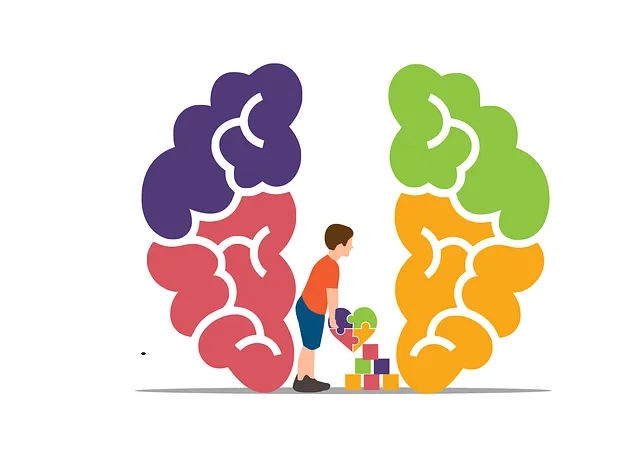Kaiser Permanente's mental health facility in Castle Rock offers swift, specialized crisis intervention services using evidence-based practices like CBT and mindfulness. Their holistic care model focuses on self-esteem, mood management, and safe expression to stabilize patients and improve emotional well-being. Trained professionals use active listening and stigma reduction to build trust, along with long-term coaching programs for sustained mental wellness.
“At Kaiser Permanente Castle Rock, crisis intervention plays a vital role in supporting patients’ mental health. This comprehensive guide delves into effective strategies tailored for this unique setting. We explore key components, from assessing and stabilizing during crises to advanced communication techniques that build trust. Additionally, we detail post-crisis care and follow-up procedures, offering essential insights for professionals at this leading Kaiser Permanente mental health facility.”
- Understanding Crisis Intervention at Kaiser Permanente Castle Rock
- Key Components of Effective Crisis Intervention Strategies
- Assessing and Stabilizing During a Mental Health Crisis
- Communication Techniques for Building Trust and Support
- Post-Crisis Care and Follow-Up Procedures at the Facility
Understanding Crisis Intervention at Kaiser Permanente Castle Rock

At Kaiser Permanente’s mental health facility in Castle Rock, crisis intervention strategies are tailored to address acute emotional distress and promote stability among patients. The approach emphasizes rapid assessment and targeted support, aiming to help individuals manage intense emotions and regain control during challenging times. This involves a multi-disciplinary team of professionals who work collaboratively to provide comprehensive care.
The mental health facility leverages evidence-based practices and Emotional Healing Processes to offer effective interventions. Techniques such as Cognitive Behavioral Therapy (CBT) and mindfulness strategies are employed to help patients identify and challenge negative thought patterns, thereby reducing symptoms of anxiety relief. Additionally, the center focuses on Emotional Well-being Promotion Techniques, fostering coping mechanisms that empower individuals to navigate future crises effectively.
Key Components of Effective Crisis Intervention Strategies

Effective crisis intervention strategies at a mental health facility like Kaiser Permanente Castle Rock involve several key components designed to stabilize individuals and foster recovery. Firstly, self-esteem improvement and confidence boosting techniques are integral. Trained professionals employ therapeutic approaches that encourage positive self-perception, empowering individuals to navigate challenging situations more resiliently. This involves creating safe spaces for expression, validating emotions, and teaching coping mechanisms tailored to individual needs.
Additionally, focusing on mood management is vital. Intervention strategies may include mindfulness exercises, cognitive behavioral therapy (CBT), and relaxation techniques aimed at regulating emotional responses during crises. By equipping individuals with tools to monitor and modify their moods, facilities like Kaiser Permanente Castle Rock ensure clients can effectively manage stress, anxiety, or depression, ultimately enhancing their ability to recover and thrive.
Assessing and Stabilizing During a Mental Health Crisis

When a mental health crisis arises, the initial focus should be on assessment and stabilization. At Kaiser Permanente mental health facilities like Castle Rock, professionals are trained to swiftly evaluate the individual’s state of mind, overall well-being, and potential risks. This critical phase involves active listening, open communication, and the use of validated tools to gain a comprehensive understanding of the crisis. The goal is not only to identify immediate dangers but also to create a safe environment that supports recovery.
Stabilization strategies may include implementing Stress Reduction Methods tailored to the individual’s needs, such as mindfulness exercises or cognitive-behavioral techniques, to help regulate emotions and alleviate symptoms. Empathy Building Strategies are also vital, fostering a supportive connection between the crisis intervener and the person in distress. This human-centered approach ensures that the intervention is not just about resolving acute issues but also lays the foundation for long-term Mental Wellness Coaching Programs Development.
Communication Techniques for Building Trust and Support

At a Kaiser Permanente mental health facility in Castle Rock, effective communication is a cornerstone of crisis intervention. Building trust with individuals in distress begins with active listening—a technique that encourages understanding and empathy by reflecting back what’s been said. This simple practice ensures the person feels heard and validates their feelings, fostering an environment where they’re willing to open up.
Using clear and non-judgmental language is another crucial communication strategy. Trained professionals at these facilities employ phrases that convey support and understanding, such as “I’m here to help” or “Let’s work together to find a solution.” This approach helps in de-escalating tense situations while encouraging individuals to share their experiences and concerns openly. Moreover, mental illness stigma reduction efforts are integral to these conversations, aiming to create a safe space where people can discuss their struggles without fear of embarrassment or discrimination.
Post-Crisis Care and Follow-Up Procedures at the Facility

After an initial crisis intervention at the Kaiser Permanente mental health facility in Castle Rock, ensuring comprehensive post-crisis care is essential for the long-term well-being of individuals. The facility’s dedicated team recognizes that recovery is a continuous process and offers structured follow-up procedures to support patients’ transition back into their communities.
This includes ongoing therapy sessions tailored to individual needs, focusing on evidence-based practices such as Social Skills Training and teaching Mind Over Matter Principles. Patients are actively engaged in developing coping strategies for managing future crises, fostering resilience, and promoting anxiety relief. The facility’s nurturing environment facilitates a safe space for patients to openly discuss their experiences, receive emotional support, and gradually reintegrate into daily routines while maintaining their mental health.
Crisis intervention plays a vital role in providing immediate support and stabilizing individuals experiencing mental health crises. As highlighted by Kaiser Permanente mental health facility in Castle Rock, effective strategies involve a multi-faceted approach combining assessment, communication, and post-crisis care. By understanding the key components outlined in this article—from assessing and stabilizing to building trust and implementing follow-up procedures—professionals at Kaiser Permanente Castle Rock are equipped to offer compassionate and comprehensive guidance during these challenging times.






